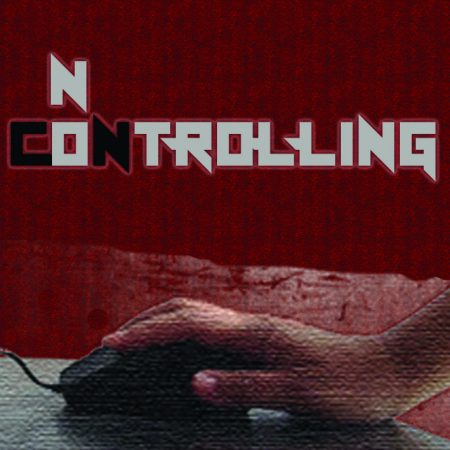IFJ Byte Back Campaign: Fighting Online Harassment
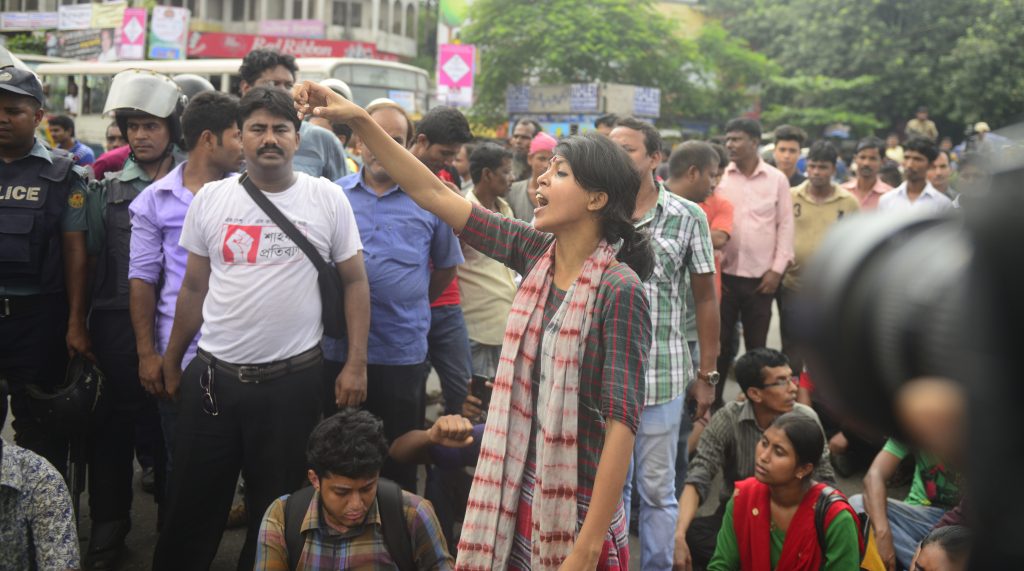
The virtual world mirrors the ‘real’ world, where women journalists are harassed, excluded and subjected to abuse for their work. Online abuse – a form of gender discrimination and violence against women – must be prevented to enable women to confidently express themselves in the digital space without nasty repercussions.
On International Women’s Day, March 8, 2017, the South Asia Media Solidarity Network (SAMSN) and IFJ, representing unions and press freedom organisations, call for strong action to stop cyber-bullying and online harassment of women journalists.
Journalists of all genders; their unions; media houses; moderators of social media platforms; the public and governments must take firm steps towards ensuring women’s rightful place in the digital world, without harassment, abuse and cyber-violence. Only then can a diversity of information, analysis and opinion co-exist contribute to building healthy and vibrant democracies in South Asia.
Join the IFJ ByteBack Campaign!
-
What is online harassment? [PDF]
- See the IFJ-SAMSN guide on what to do if you are harassed online [PDF]
- Download campaign resources and graphics here
- Spread campaign messages with hashtags #DontTroll and/or #DefendMyVoiceOnline and mention @ifjasiapacific for our retweet
- Resources to raise awareness with solid evidence and data:
- Here is what our IFJ affiliates and their members have to say about the fight against online harassment of women in the media [VIDEOS]
- Join our mail list here
IFJ Documents
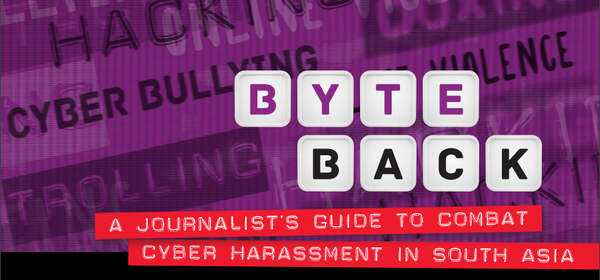 |
South Asian Editors Speak Out Against Online Harassment
Prominent editors from India, Pakistan and Sri Lanka discuss the ever-growing menace of online trolling and abuse of women journalists and what action can be taken to stop it.
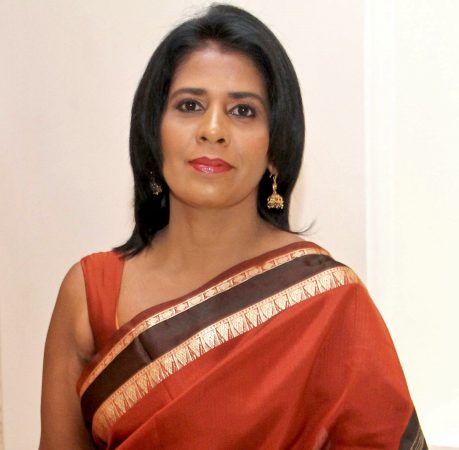 |
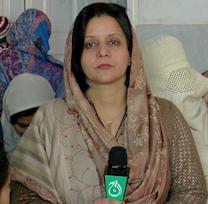 |
 |
| Dilrukshi Handunnetti, Sri Lanka “Awareness and Collective Countering are Key” |
Farzana Ali, Pakistan “Technology has made it easier to harass women” |
Dhanya Rajendran, India “Stand by and Support Other Women Journalists” |
SAMSN Blogs on Online Harassment
- Trolling is stoppable, by Laxmi Murthy
Understanding trolling behaviour holds to clue to stopping it. - I tweet but am very selective and very careful, by Zofeen Ibrahim
Zofeen Ebrahim, Karachi-based freelance journalist, says that hate speech
and online misogyny need to be moderated. - ‘Sexually Explicit Abuses Land in my Inbox’, by Neha Dixit
An award-winning journalist describes how she is relentlessly trolled and harassed. - Trolls Target India’s Media Women, by Sujata Madhok
General Secretary of the Delhi Union of Journalists analyses the move by the Ministry of Women and Child Development to curb online harassment. - The Silent Crime, by Dilrukshi Handunnetti
A Sri Lankan journalist describes how sexual harassment and online gender-based violence hinder progress in Sri Lanka.
Campaign Resources
Campaign videos by SAMSN members
| More videos | |
Social media resources to share
Download more social media sharing graphics here.
 |
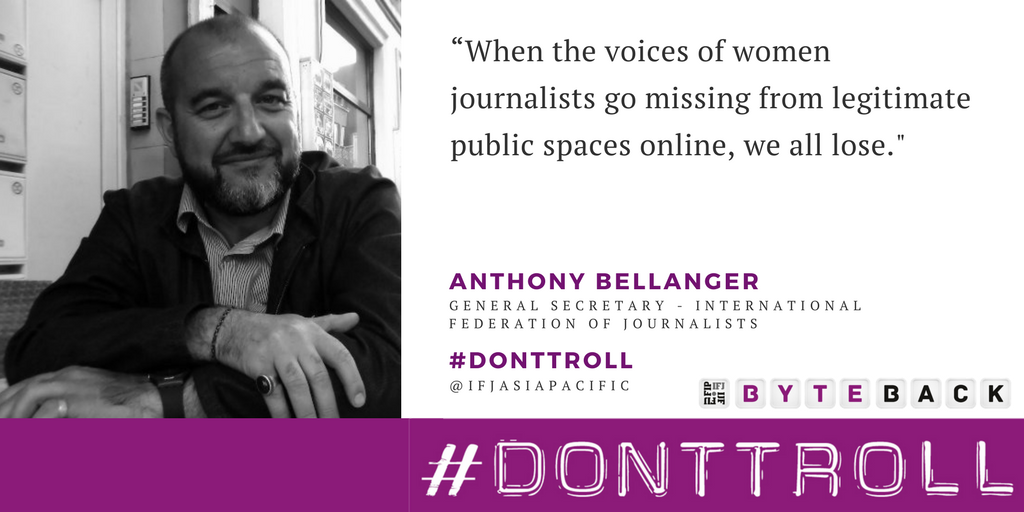 |

From the Media
- Pakistan govt urged to provide secure environment to womenA resolution passed on International Women’s day underlined the fact that information-technology-related violations, abuses, discrimination and violence against women, including women human rights defenders, such as online harassment, cyber-stalking, violation of privacy, censorship and the hacking of e-mail accounts, mobile phones and other electronic devices, with a view to discrediting them and/or inciting other violations and abuses against them, are a growing concern.
- The Indian woman’s guide to 4 types of online trollsThe perfect targets for online trolls are successful and opinionated women, who wear what they want and stand up for what they believe in.
- What Studying the Impact of Surveillance on Women Can Teach Us About Power A new research project that examines the impact of surveillance on women offers wider answers about the relationship between data, power and autonomy.
More from the media here.

See the IFJ Byte Back Campaign happening across the Asia-Pacific here
Resources
- Gendering Surveillance A new report hopes to make more concrete the multifaceted ways in which widespread surveillance shapes and harms our lives. Gendering surveillance deepens and sharpens the debate, allowing us to move it forward in new and profoundly empowering ways.
- The Report of the Best Practices Forum on Online Abuse and Gender-Based Violence Against Women and Girls The report by Internet Governance Forum 2015 found that online abuse and gender-based violence have to be studied keeping in mind offline/physical environments, and potential repercussions in offline/physical environments. The Report suggests that relief and redress to victims of online abuse must be prioritised over criminalisation.
- Challenging Patriarchy through the lens of Privacy This special briefing by the Privacy International for International Women's Day, 2017 explores concerns related to online privacy, surveillance, women's rights and gender.
More resources here.


